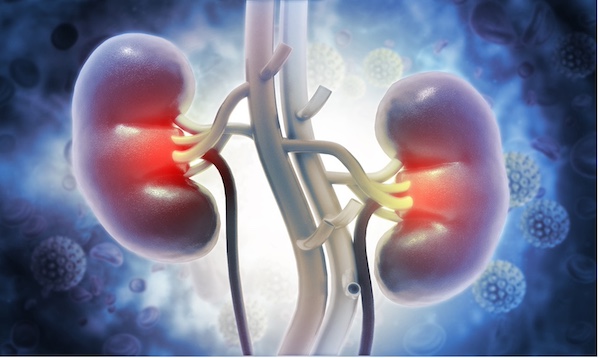Simple Measurement Predicts Risk of Rapid Progression of Chronic Kidney Disease
February 29, 2024
Source: drugdu
 288
288
 Chronic kidney disease (CKD) is increasingly becoming a major health issue worldwide. For those diagnosed with CKD, the rate of disease progression can vary, with some individuals experiencing a rapid deterioration in kidney function. Healthcare providers need to spot patients who are newly diagnosed with CKD and are at a heightened risk of rapid disease progression. Early identification can allow for timely interventions that could slow down, or in some cases, prevent the progression of the disease. Now, researchers have made a breakthrough by discovering a simple method to identify individuals at high risk for rapid CKD progression, an advancement that could greatly enhance prevention and treatment strategies.
Chronic kidney disease (CKD) is increasingly becoming a major health issue worldwide. For those diagnosed with CKD, the rate of disease progression can vary, with some individuals experiencing a rapid deterioration in kidney function. Healthcare providers need to spot patients who are newly diagnosed with CKD and are at a heightened risk of rapid disease progression. Early identification can allow for timely interventions that could slow down, or in some cases, prevent the progression of the disease. Now, researchers have made a breakthrough by discovering a simple method to identify individuals at high risk for rapid CKD progression, an advancement that could greatly enhance prevention and treatment strategies.
In a comprehensive study, a team of researchers from Aarhus University (Aarhus, Denmark) examined the precise risk of rapid CKD progression utilizing data from Danish health registers. This study provides valuable insights for medical professionals on identifying patients who are more likely to experience a rapid deterioration of their kidney health. The study’s findings revealed that patients who have been recently diagnosed with mild to moderate CKD face a 15% chance of rapid disease progression within three years, a situation that could lead to severe cardiovascular issues or even be life-threatening. Interestingly, the study also uncovered considerable variation in the progression risk among different patients. A simple urine test to measure protein levels emerged as a key predictor of kidney disease trajectory.
For women who do not have diabetes, elevated blood pressure/cardiovascular disease, and lack albumin in their urine, the risk of rapid CKD progression stands at 7%. Conversely, the risk escalates to 47% for men who have both diabetes and elevated blood pressure/cardiovascular disease, along with the presence of albumin in their urine. This finding is critical as albumin can act as a marker for kidney disease progression. It enables the identification of patients who are most susceptible to rapid disease deterioration, thereby aiding in the prevention of complications and potentially enhancing the patient's quality of life. This finding highlights the importance of the widespread adoption of this simple urine test. By doing so, healthcare professionals can more effectively tailor treatments and monitoring for those at the greatest risk. This approach holds the potential for substantial benefits for patients globally.
"We hope that this result can contribute to increased awareness of the importance of using readily available markers – including albumin in the urine – to identify patients at high risk of rapid progression," said Christian Fynbo Christiansen, Professor at the Department of Clinical Medicine at Aarhus University. "I think we will focus much more in the future on patients with milder stages of the disease, like those we included in this study. If we get better at preventing and treating chronic kidney disease and its associated complications, it could potentially benefit both patients and society."
Source:
https://www.labmedica.com/molecular-diagnostics/articles/294800382/simple-measurement-predicts-risk-of-rapid-progression-of-chronic-kidney-disease.html
Read more on
- The first subject has been dosed in the Phase I clinical trial of Yuandong Bio’s EP-0210 monoclonal antibody injection. February 10, 2026
- Clinical trial of recombinant herpes zoster ZFA01 adjuvant vaccine (CHO cells) approved February 10, 2026
- Heyu Pharmaceuticals’ FGFR4 inhibitor ipagoglottinib has received Fast Track designation from the FDA for the treatment of advanced HCC patients with FGF19 overexpression who have been treated with ICIs and mTKIs. February 10, 2026
- Sanofi’s “Rilzabrutinib” has been recognized as a Breakthrough Therapy in the United States and an Orphan Drug in Japan, and has applied for marketing approval in China. February 10, 2026
- Domestically developed blockbuster ADC approved for new indication February 10, 2026
your submission has already been received.
OK
Subscribe
Please enter a valid Email address!
Submit
The most relevant industry news & insight will be sent to you every two weeks.



